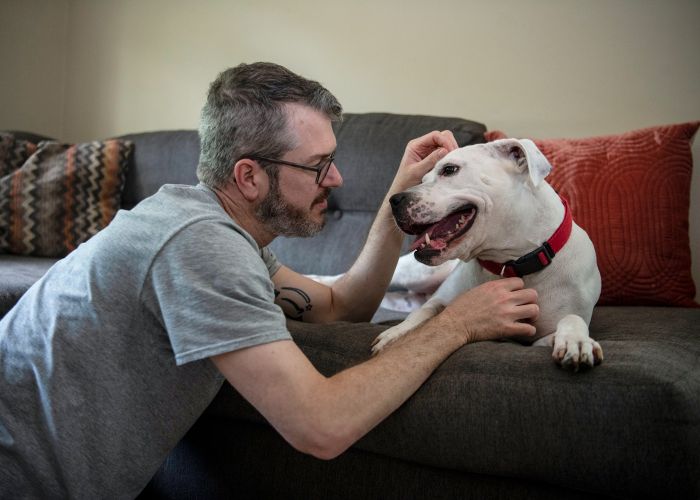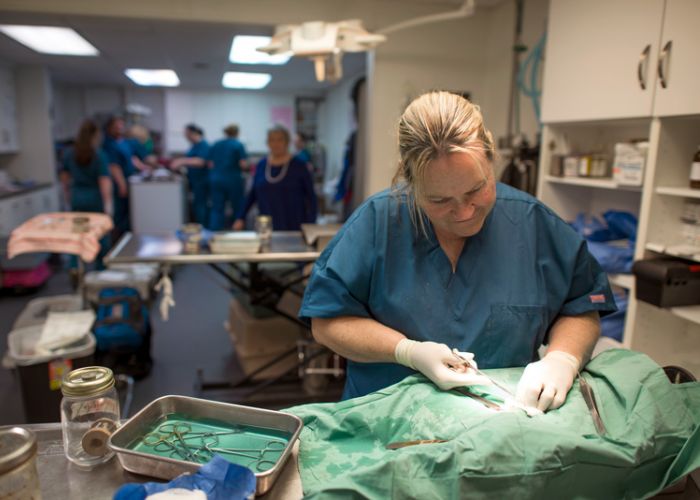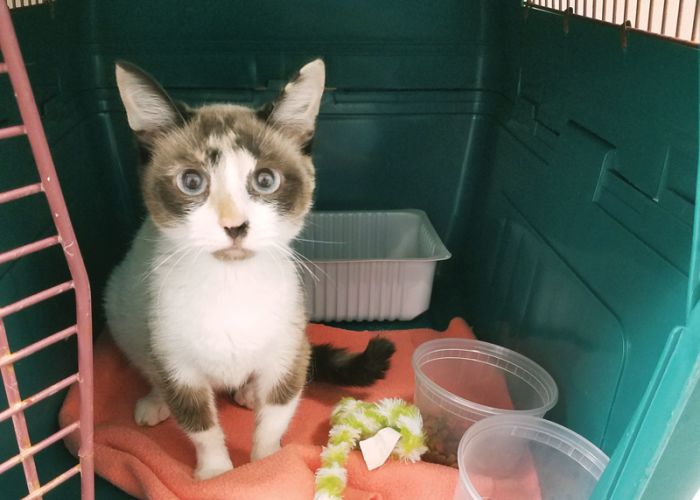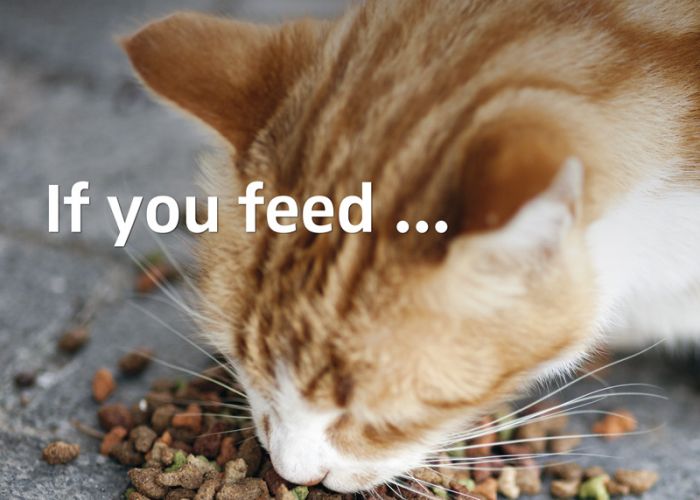What the fomite?
Florida shelter spreads the word about infectious disease
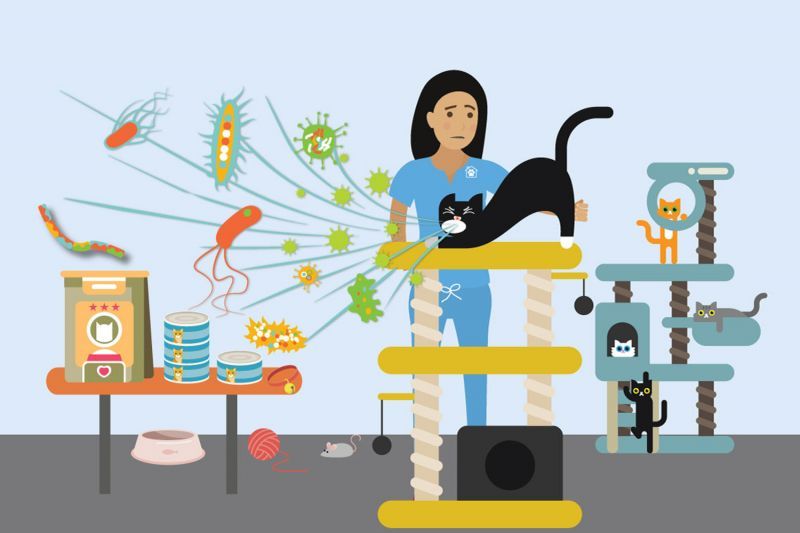
Would you be worried if I said you have fomites?
Believe it or not, your skin cells, hair and clothing are fomites, and so is your cell phone and that pen you’re carrying around. A fomite is simply a nonliving object or material that can transmit infection.
So when Peggy Adams Animal Rescue League in West Palm Beach, Florida, had an outbreak of panleukopenia—the feline version of parvo virus—during kitten season last year, volunteer program manager Tara Pregnolato realized staff and volunteers needed extensive training to “help them understand how easily we can be part of the spreading process,” she says. “I think sometimes we feel rushed, and we make mistakes.”
Thanks to Florida’s warm climate, Peggy Adams takes in between 10 and 40 underage, orphaned kittens every day from March through November, says Pregnolato. “When you have a population that high coming in as strays from the street, you run the risk of panleukopenia entering the shelter environment.”
Enter WTFomite, a training program about disease transmission. After creating the presentation in just three days, Pregnolato and her fellow trainers held 16 hour-long emergency sessions over four days, paying staffers overtime if needed. Pregnolato used VolunteerLocal, an online volunteer management service, to schedule trainings; the program was mandatory for all 115 staffers, including the CEO and chief financial officer, as well as 470 active volunteers.
“We decided a long time ago not to dumb anything down for the volunteers,” she says. “Everyone goes through the training so that they’re getting the same level of training as everybody else. … There’s really no limit to what we’ll show a capable and willing volunteer how to do.”
The training includes a PowerPoint embedded with a 24-minute Maddie’s Fund video, “Don’t Be a Fomite! Principles of Disease Transmission,” which covers modes of transmission like airborne, droplet and direct transmission. (Spoiler alert: Fomite transmission is one of the most common forms of disease transmission.)
Pregnolato then covers personal protective equipment (PPE), spraying shaving cream on PPE-clad trainees to mimic germs and challenging them to remove the bonnet, apron, gloves and shoe covers without spreading the shaving cream to hands, clothes or floors. She finishes with a plug for Rescue Disinfectant (an accelerated hydrogen peroxide disinfectant formulated for the companion animal health sector) and an explanation of its uses at the shelter and around the home, which usually results in a stampede to the front desk to purchase bottles, she says.
Medical services manager Melinda Becker and shelter manager Brittni Flemming also created PPE plans and posted laminated checklists in every room. Checklists include directives like “No Cuddling” and detail the required PPE, from gloves, gowns and aprons to bonnets and shoe covers, often changed between cages. Dirty aprons are dropped into red laundry bins and reused, but other PPE is for one-time use. As you might expect, the kitten nursery and isolation rooms have the most stringent PPE requirements.
“We are a big shelter with a lot of staff and a lot of volunteers,” says Pregnolato, adding that Peggy Adams services around 45,000 animals a year and shelters around 7,500 a year. Smaller shelters with limited resources should “at least [make] people aware of what a fomite is and how easily their movements around the shelter can affect another department and another animal.” Shelters could also build relationships with local hospitals to potentially receive donated or sponsored PPE, she says.
Pregnolato now presents WTFomite every month as part of mandatory training for all new staff and volunteers. The shelter plans to remind staff to follow protocol on a regular basis, using handouts or additional trainings. On the infrequent occasion someone is improperly suited up, she says, “That’s not a conversation we’re afraid to have.”
“It seems like the disease has been kept at bay—we haven’t seen any panleuk outbreaks, we haven’t seen any ringworm or upper respiratory [infections] going around,” she says. “So people are really taking it seriously.”
In a few cases, too seriously: Some people have reconsidered volunteering after seeing the presentation; one volunteer now chooses to strip naked at home in the garage and immediately shower to avoid spreading anything to pets at home, she says.
“It took a few minutes for our staff and volunteers to understand: You are the fomite,” says Pregnolato, but “it’s really important not to freak everyone out.” Becoming a fomite “is a risk you run every time you leave the house,” she reminds them. “Wash your hands, be smart, vaccinate your animals.”
Personally, when she returns home each night, Pregnolato simply sprays her shoes with Rescue Disinfectant and leaves them in her garage before going inside.



